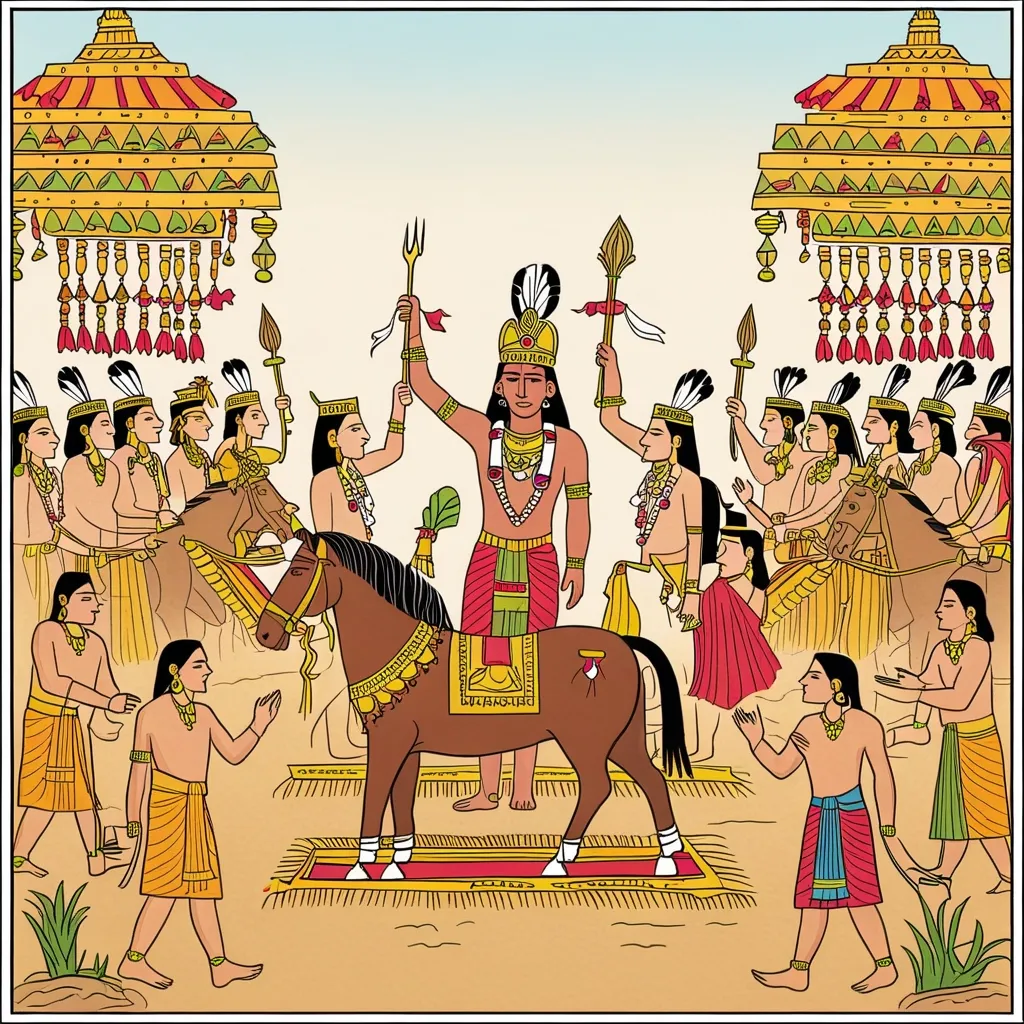Alright, let’s jump into some ancient wisdom that’s surprisingly on point for today’s world of management and leadership. Picture this: centuries ago, folks scribbled down some pretty deep ideas in the Vedas, the sacred texts forming the foundation of Hindu philosophy. Fast forward to today, and those same thoughts can still steer us right in how we manage and lead, whether in governments, businesses, or just in our everyday lives.
In the Vedas, there’s this cool concept called Rajaneeti, meaning the art of governance. It’s all about self-improvement as the first step to leading others. Imagine a leader who’s working on themselves, polishing their character and integrity, and by doing so, naturally boosting the society they’re heading. Pretty neat, right?
But to truly get what Vedic governance is about, it helps to know a handful of Sanskrit terms. Take Sukham, which isn’t just about being happy—it’s more like a sense of well-being and deep contentment. Then there’s Dharma, which isn’t just a religious thing but a way of living that’s packed with moral and ethical goodness. Artha tackles the economy or resources, while Rajyam is about the state or government. Indriya-Vijayi refers to those who’ve nailed down self-control, which is a must if you’re going to lead effectively.
These terms are all intertwined. The ultimate aim in life, or that sweet sense of Sukham, is grounded in living according to Dharma. And Dharma? It’s rooted in Artha—yeah, you need some economic stability to live ethically. Then comes Rajyam, or solid governance, which forms the bedrock for Dharma. Only a well-managed state can foster ethical living, and those steering the ship should be Indriya-Vijayi—masters of their own senses.
Think about why self-control is such a big deal for leaders. A leader who’s ruled by their own desires is on a one-way trip to making terrible decisions. Strength, as the Vedas would have it, comes from wisdom, not just from knowledge. When a leader keeps their senses in check, they guide their people on a path to wisdom, health, wealth, and success.
Now let’s talk Dharma in governance. This isn’t just a set of moral dos and don’ts but a holistic way of life. It assures society’s well-being. The state, or Rajyam, isn’t just a governing body—it’s a spiritual and comprehensive system based on Dharma. Picture all its parts—the ruler, the judiciary, the banks, the military, and social services—working together in harmony towards the purpose of Dharma.
Economic stability? Yeah, that’s a biggie in Vedic governance. Good governance is like a magnet for economic growth. A thriving economy provides people with opportunities, which fuels Dharma, ultimately ensuring Sukham. It’s a cycle where ethical living and economic growth feed off each other.
And then there’s the business side of things, or as the Vedas would probably call it, Vedic management. It’s not just about hitting material success but balancing it with spiritual fulfillment—what they term as Sattva. This balance is key to real prosperity, both for individuals and organizations alike.
Businesses should operate with integrity and social responsibility—classic Dharma. This means thinking long-term about the consequences of actions and prioritizing ethical behavior. It’s like the concept of Karma—what goes around comes around, promoting a sustainable way of doing business.
Working in tune with nature is another big point in Vedic management. This ties in nicely with modern sustainability efforts. Companies need to be mindful of their environmental impact and strive for balance among economic, social, and environmental concerns.
Emotional intelligence in leadership? You bet the Vedas were onto that too. The Rig Veda stresses understanding oneself before dealing with others, mirroring modern theories of emotional intelligence. Effective leaders manage their emotions well, influencing key psychological aspects like response, cognition, and awareness.
Then there’s transformational leadership, a Vedic gem that’s super relevant now, especially in our fast-paced digital world. Leaders should aim for all-around contentment, focusing on emotional intelligence, employee engagement, and rocking those corporate ethics. This shapes a positive, productive workplace.
Self-awareness is also crucial. Leaders need to know their own minds and emotions to better understand others, resulting in smarter decisions. Vedic management loves teamwork and collaboration, encouraging unity and cooperation among employees for better productivity and results.
Karma reminds businesses to ponder the long-term implications of what they do, pushing a sustainable approach. More than just chasing profits, it’s about finding purpose and fulfillment in work, benefiting employees and the whole organization.
Lastly, applying these Vedic principles today can be pretty refreshing amidst all the complexities of modern business. By mixing material success with spiritual satisfaction, dealing with integrity, and pondering the long-term effects of actions, businesses can thrive genuinely and prosperously.
These principles aren’t just lofty ideals; they have practical kick too, showing up in various modern management aspects, from HR to corporate governance. Vedic governance and leadership offer a comprehensive playbook for effective management. They stress self-control, integrity, and harmony with nature, while encouraging businesses to keep a long-term vision and a clear sense of purpose.
These timeless wisdoms from ancient texts continue to inspire and guide leaders in their pursuit of creating a better world for everyone. So, whether you’re leading a company, a team, or just trying to get your own life together, it turns out those ancient scribblings have some solid advice worth considering.






